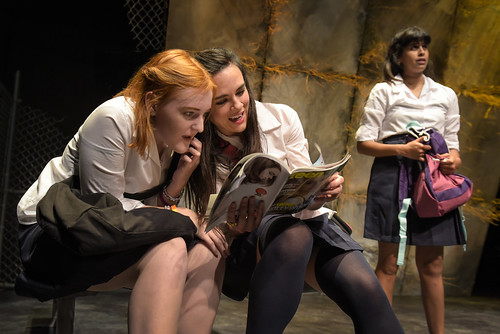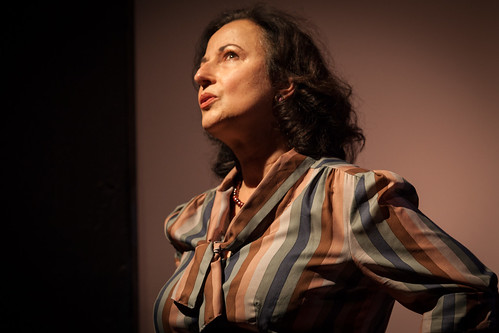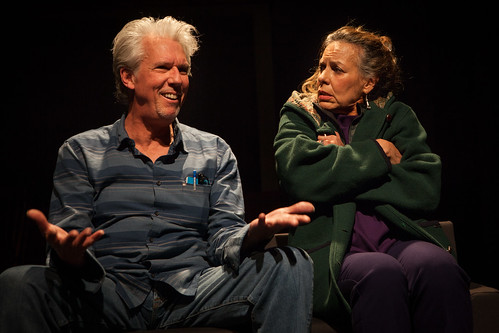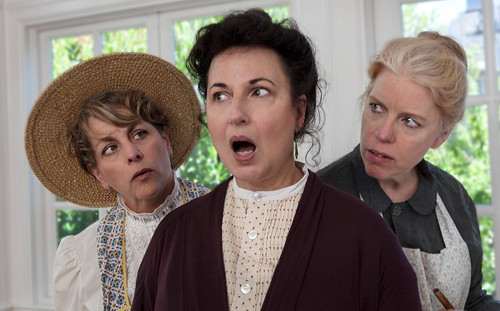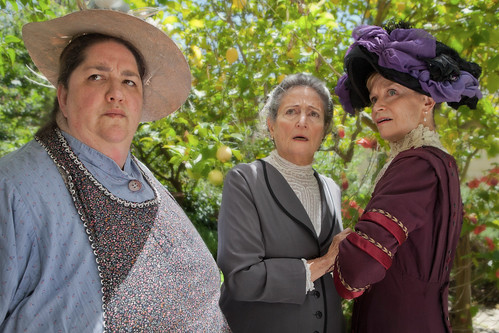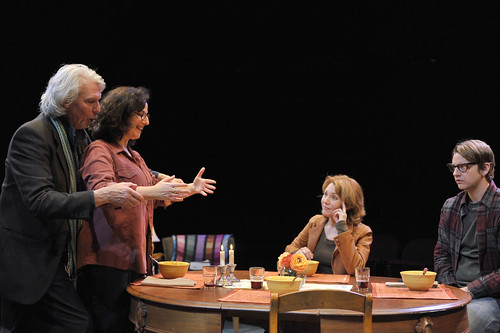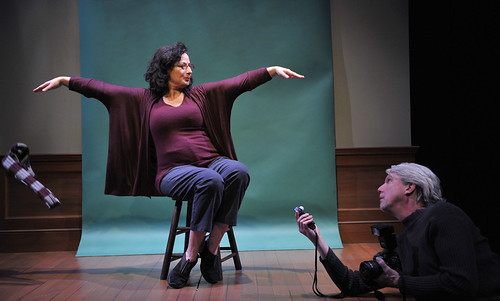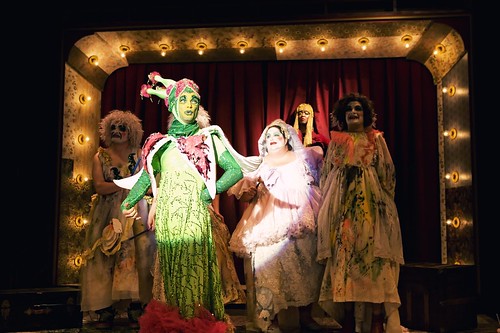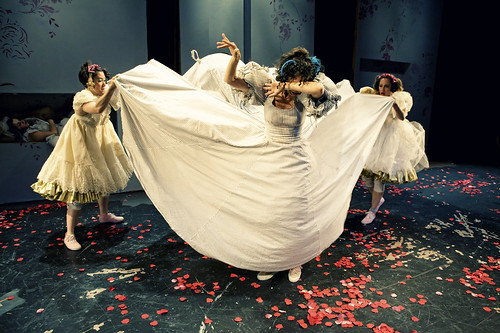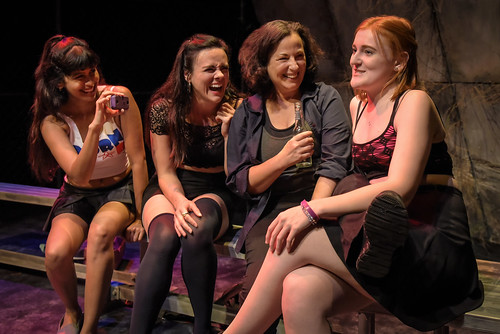
Teen friendship, power and sexuality are explored in Lachlan Philpott’s Truck Stop receiving its American premiere from Crowded Fire Theater. Directed by Marilee Talkington, the play features an ensemble that includes (from left) Jamie Asdorian as Aisha, Jessica Lynn Carroll as Sam, Jeri Lynn Cohen in multiple roles and Chelsea Looy as Kelly. Below: Kelly (Looy, left) and Sam (Carroll, center) have been friends since they were six. Can Aisha (Asdorian), the new girl in town, find a place in their inner circle? Does she even want to? Photos by mellopix.com
The whole time I was watching Lachlan Philpott’s Truck Stop, a Crowded Fire Theater production at Thick House, I was working myself into a state of anxiety imagining being the parent of a teenage girl. How do you fight the global objectification of women and instill a sense of self-worth that comes as much from intellectual, spiritual, emotional places and not just the physical and sexual, which it seems is all the world cares about if you’re watching TV or movies, reading magazines or listening to music.
My ever-increasing anxiety level appreciated the fact that this play was only about 100 minutes long, but Philpott, director Marilee Talkington and a powerful cast cram a lot to worry about into that hour and a half. Interestingly, and, it turns out, wisely, Philpott’s Australian play is performed as written with lots of references to Australian things, but without making the actors speak with Australian accents. That’s just not necessary to convey the plot or the emotional power of the story. Teenage girls in Australia aren’t all that different from teenage girls anywhere else, so even though there’s a specific Australian small town setting, there’s a universal feeling of dread that we’re not doing enough to harness the considerable energy and unlock the great potential of young women.
To be clear, in no way is Philpott lecturing us. This is a far cry from an after-school special. Rather, in a hyper-theatrical (and engaging) way, he’s showing us what girls are up against, both in their intimate worlds of friends and family and in the greater cultural landscape. His time-bending story begins with the ruptured relationship of BFFs Kelly (Chelsea Looy) and Sam (Jessica Lynn Carroll), 14-year-old parochial high school students who have been friends since first grade. The girls are in some kind of trouble, and that has led to a big fight (slapping, punching and the like) and then the silent treatment followed by visits to the women’s health clinic and a counselor.
The course of the play essentially leads us to the cause of the rupture and it’s quite something – aggressively sexual, shocking and illegal. Before that point, though, we get to know Sam, in all her harsh intelligence, and Kelly in her tormented search for a moral center. The contrast between the two friends comes into play with the arrival of a new student, Aisha (Jamie Asdorian), recently arrived from Bangalore. Kelly is compassionate and friendly with Aisha, a more innocent 14-year-old than either Sam or Kelly. Sam taunts the new girl by calling her Curry or purposefully mispronouncing her name as Asia, yet she allows the duo to become a trio that goes by the semi-jokey name of “the Skanks.”
We see the influence of Sam and Kelly on Aisha as she begins to rebel against her mother and her family’s traditions and makes a (sweet) connection with a boy.
From the beginning of the play, there are glimpses into the interior life of Sam and Kelly as they imagine their lives reflected in pop culture – in music videos, movies and more, and those images become sizzling, beautifully executed projections on Maya Linke’s set, which comprises chain link fencing, three metal benches and a dangling wall that is actually the pavement shot through with dead tumbleweeds. It’s desolate and gorgeous at the same time.
Moving through the bumpy story of these girls and their relationships is the invaluable Jeri Lynn Cohen. She plays all the adults (and even other teens), and the great thing about her (and Philpott’s writing for the adults) is that they are not the stereotypical enemy of all things teenage fun. There’s cluelessness to be sure but also concern and genuine care, and that keeps things interesting as Sam and Kelly head into a steep learning curve based on some poor (to say the least) choices.
The performances here all crackle with vitality and the spark of Philpott’s strong script. Watching Sam and Kelly make mistakes made me ache for my imaginary daughter, the one I want to embrace her freedom and value her whole self and make good choices and learn from her bad ones. How do you give girls what they need to transition from girls to women, protecting them and letting them do what they need to do? Truck Stop is not bleak. You get a sense that Sam (who has a fascinating moment of self-awareness) and Kelly will move on with the possibility of being smarter and stronger. But you just never know. Cue the anxiety.
FOR MORE INFORMATION
Lachlan Philpott’s Truck Stop, a Crowded Fire Theater production, continues through Oct. 24 at Thick House, 1695 18th St., San Francisco. Tickets are $15-$35. Call 415-523-0034, Ext. 1 or visit www.crowdedfire.org.

